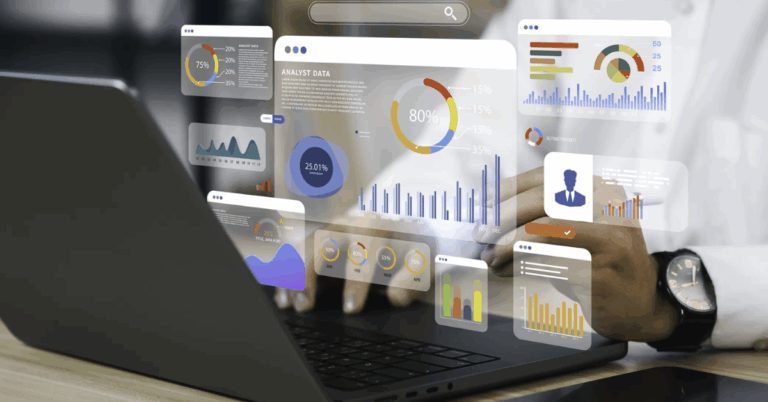Sales Tracking Software for Small Business: The Key to Growth and Efficiency
For any small business, tracking sales effectively is the foundation of growth, customer satisfaction, and profitability. As competition increases and customer behavior becomes more complex, small business owners need reliable tools to stay ahead. That’s where Sales Tracking Software For Small Business comes into play.
This article explores everything you need to know about using sales tracking software for small business—from its benefits and features to cost, functionality, and frequently asked questions.
What Is Sales Tracking Software for Small Business?
Sales tracking software for small business is a digital tool that helps you monitor, manage, and analyze your sales activities. It records customer interactions, manages leads, tracks conversions, and provides insights into your sales performance. For small businesses, this software is essential in staying organized, closing more deals, and making informed decisions.
Rather than using spreadsheets or manual notes, sales tracking software for small business offers a centralized platform where all sales data can be accessed and updated in real-time.
Why Small Businesses Need Sales Tracking Software
Running a small business means juggling multiple tasks. Without the right tools, it’s easy to lose track of leads, forget follow-ups, or miss out on valuable opportunities. Here’s why using sales tracking software for small business is a smart move:
Improve Sales Visibility
Track every deal, contact, and pipeline stage to understand where your sales are coming from and how to increase conversions.
Boost Productivity
Automate repetitive tasks like data entry, reminders, and emails. This allows your team to focus on selling, not paperwork.
Enhance Customer Relationships
Track interactions and customer preferences to personalize communication and build lasting relationships.
Make Data-Driven Decisions
Use built-in analytics to evaluate sales trends, team performance, and campaign effectiveness.
Key Features of Sales Tracking Software for Small Business
When selecting sales tracking software for small business, it’s essential to look for features that support your unique workflow. Most high-quality platforms include:
Lead Management
Capture, qualify, and prioritize leads from various sources. Know where every potential customer is in your pipeline.
Contact Management
Keep detailed records of each customer’s contact information, past interactions, preferences, and sales history.
Sales Pipeline Visualization
Visual dashboards that show where deals are in the sales process, helping you identify bottlenecks and forecast revenue.
Task and Activity Tracking
Schedule follow-ups, meetings, and calls. Set automated reminders to never miss a step.
Reporting and Analytics
Generate real-time reports on sales volume, conversion rates, customer acquisition cost, and more.
Integration with Other Tools
Connect your sales tracking software for small business with email, calendars, and marketing platforms to streamline operations.
How Sales Tracking Software Helps Small Businesses Compete
Small businesses don’t always have large sales teams or resources, but they can compete effectively with the right technology. Here’s how sales tracking software for small business can level the playing field:
-
Track every opportunity: Follow up with leads and nurture prospects through the funnel.
-
Standardize the sales process: Establish consistent steps that your team follows to close deals.
-
Monitor performance: Identify top performers and areas where improvement is needed.
-
Respond faster: Receive alerts and notifications when prospects engage, allowing quick follow-up.
Choosing the Right Sales Tracking Software for Small Business
Not all platforms are created equal. When evaluating sales tracking software for small business, consider these factors:
Ease of Use
The software should be user-friendly so your team can adopt it quickly without extensive training.
Affordability
Look for a solution that fits your budget while offering scalable features as your business grows.
Customization
Your software should allow you to create custom fields, workflows, and reports that match your unique needs.
Mobile Access
Sales happen on the go. Mobile-friendly platforms ensure you’re always connected, even outside the office.
Customer Support
Choose a provider that offers responsive customer support to help you troubleshoot and optimize usage.
Common Mistakes to Avoid
When using sales tracking software for small business, be sure to avoid these pitfalls:
-
Not updating data regularly: Outdated or incomplete information reduces the software’s effectiveness.
-
Using too many tools: Avoid fragmented systems; integrate sales tracking with marketing, CRM, and finance.
-
Skipping training: Even the best tool is only useful if your team knows how to use it well.
-
Ignoring analytics: Use the data to refine your strategy and improve decision-making.
Cost of Sales Tracking Software for Small Business
Prices for sales tracking software for small business vary widely depending on features and the number of users. Many providers offer:
-
Free basic plans for startups with limited needs
-
Monthly subscriptions ranging from $15 to $100 per user
-
Custom pricing for growing businesses with specific requirements
Be sure to evaluate the return on investment by comparing the cost against the time saved and sales increased.
Implementation Timeline
Getting started with sales tracking software for small business typically involves:
-
Setup and configuration – 1–2 days
-
Importing contacts and data – 1–3 days
-
Training your team – 1–5 days
-
Full adoption and optimization – 1–4 weeks
The faster your team adapts, the sooner you start seeing results.
FAQ: Sales Tracking Software for Small Business
What does sales tracking software do?
Sales tracking software for small business helps manage customer interactions, leads, sales pipelines, and performance analytics. It streamlines the sales process and provides insights for better decision-making.
Is sales tracking software only for sales teams?
No. While sales teams use it most, owners, marketers, and customer service teams also benefit from centralized data and visibility into customer interactions.
Can I use sales tracking software for a home-based business?
Absolutely. Sales tracking software for small business is ideal for solo entrepreneurs and home-based businesses that want to stay organized and professional.
How secure is sales tracking software?
Reputable providers use encryption, secure servers, and data backup to protect your information. Always check for compliance with security standards.
How do I know which software is best for my small business?
The best sales tracking software for small business depends on your industry, sales process, budget, and team size. Look for software that offers the features you need with room to grow.
Do I need technical skills to use sales tracking software?
No. Most platforms are designed for ease of use with intuitive dashboards, drag-and-drop features, and minimal technical requirements.
Final Thoughts
Choosing the right sales tracking software for small business can dramatically transform how you manage customers, convert leads, and grow revenue. Whether you’re a startup or an established business, using sales tracking tools gives you the clarity, control, and confidence to make smarter decisions.
In today’s fast-paced market, relying on manual processes or disorganized spreadsheets just doesn’t cut it. With sales tracking software for small business, you gain a competitive edge and set your company up for long-term success.







